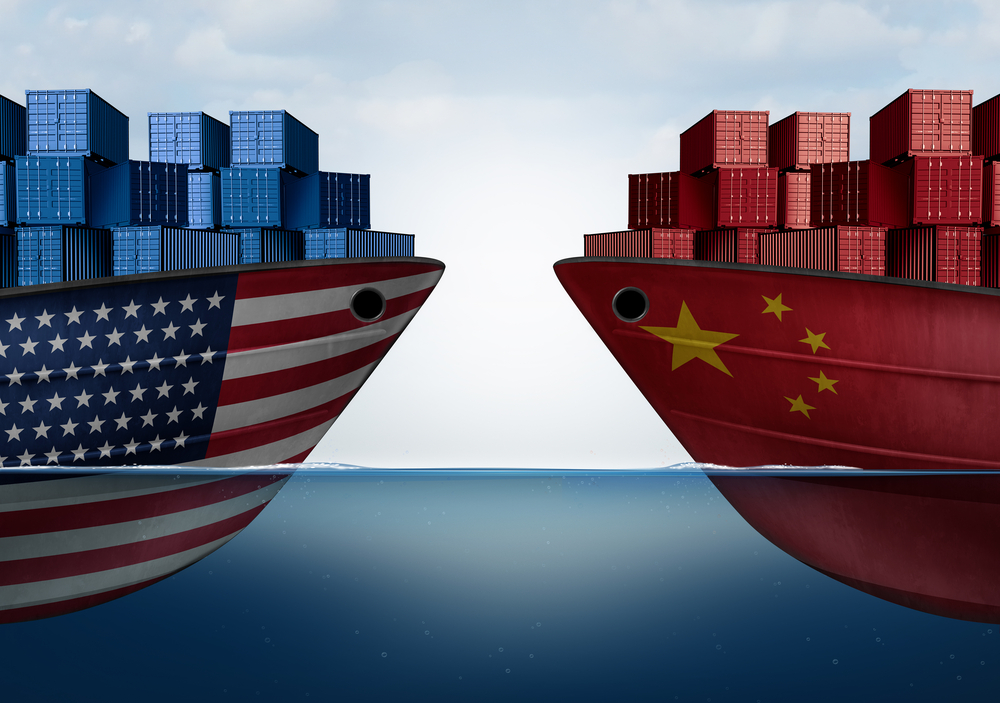In recent years, American politics has been mired in a narrative of fear and suspicion surrounding China—a narrative perpetuated by successive administrations, defined by nothing so much as speculation and hysteria, and which has fueled the production of a plethora of counterproductive protectionist policies. The latest move by the Joe Biden administration to impose steep tariffs on Chinese imports, including electric vehicle (EV) batteries, computer chips, and medical products, is just another chapter in this saga. The damaging consequences of such policies touch not only tensions with China, already greatly exacerbated, but also inflict significant costs on American consumers, firms, and taxpayers.
Remember: no matter how they are packaged up and sold, usually wrapped in the flag under such rhetorical arabesques as “Buy American!” or cries of “National Security!” tariffs by their very nature serve to protect domestic industries from foreign competition at the expense of domestic consumers. When tariffs are imposed, they artificially inflate the prices of imported goods, making them more expensive for consumers. This not only diminishes consumer purchasing power but also limits choices in the marketplace. Moreover, tariffs tend to benefit politically connected domestic producers who are capable of acquiring protection, thereby increasing their market power and stifling competition. In the end, tariffs primarily burden domestic consumers, who bear the brunt of higher prices while receiving little, if any, tangible benefits in return—except, of course, those politically connected firms who benefit. In this case, the politically important American automotive makers and their unions, who need “protecting” from products BYD’s Seagull, a competition crushing EV that sells for about $10,000.
Politics being politics, despite Biden’s promising, previous criticism of Donald Trump’s protectionist policies while campaigning for office in 2020, his administration has adopted and even amplified them as election season 2024 ramps up; the new tariffs just announced double, triple, and even quadruple the levies on the above listed imports.
Trump, for his part, has floated numbers as high as 60% across the board.
Of course, as stated in the opening, these tariffs are not isolated actions but part of a broader trend of anti-China legislation sweeping through Congress and state legislatures across the country. From bills targeting TikTok for a forced sale to measures restricting Chinese citizens from buying land in states like Georgia and Florida, the China threat hysteria has permeated every level of government, feeding into a dangerous cycle of retaliation and escalation.
For example, the Trump administration’s tariffs on various imports in 2018 were intended to bolster American industries and punish foreign exporters. However, the Chinese (obviously) retaliated, and the economic evidence shows that American firms and consumers bore the brunt of these tariffs. Studies examining the tariffs on washing machines, solar panels, aluminum, steel, and goods from China and the European Union, for example, found that American firms and final consumers bore the entire burden of tariffs, resulting in billions of dollars in losses annually for the U.S. economy.
Furthermore, the Trump-Biden tariffs have bypassed congressional approval, with funding for programs like the Market Facilitation Program coming from the Credit Commodity Corporation. This unprecedented use of these government funds (predictably) lacked proper oversight, leading to millions of dollars being sent to farms improperly.
The Biden administration’s decision to escalate tariffs on Chinese imports, therefore, only serves to perpetuate the destructive retaliatory cycle—with Beijing already promising to respond. While touted as measures to protect American industries and national security, these tariffs impose significant costs on American consumers, firms, and taxpayers, while doing little to address the underlying issues. Instead of succumbing to fear and suspicion, policymakers must pursue a more constructive and pragmatic approach to U.S.-China relations, one that prioritizes diplomacy, dialogue, and mutual cooperation.
In conclusion, the new tariffs on Chinese imports must be seen in the context of the broader fake China threat hysteria that has dominated American politics in recent years. From TikTok bans to land restrictions, the China threat narrative has permeated every level of government, driving destructive policies that harm both countries’ economies and global stability. It is time for policymakers to reject fear and suspicion and pursue a more constructive path forward—one that promotes cooperation and dialogue rather than confrontation and conflict.








